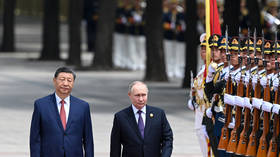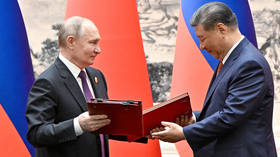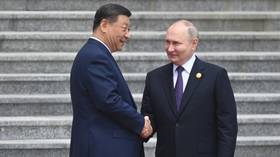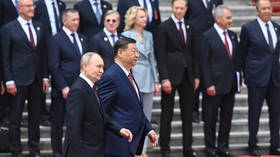US debt crisis to slow East Asian growth – FT

East Asia’s developing economies are facing one of the lowest growth rates in five decades as a result of negative factors such as US protectionism and rising levels of debt, the Financial Times reported on Tuesday, citing data by the World Bank.
The institution cut its 2024 GDP growth forecast for East Asia and the Pacific on Sunday from the previously expected 4.8% to 4.5%.
“The projections show that the region, one of the world’s main growth engines, is set for its slowest pace of growth since the late 1960s, excluding extraordinary events such as the coronavirus pandemic, the Asian financial crisis and the global oil shock in the 1970s,” FT wrote.
According to the World Bank, rising geopolitical tensions and the possibility of natural disasters, including extreme weather events, pose additional downside risks to the region’s economic outlook. Softer global demand, as well as rising household, corporate, and government debt have also been affecting growth prospects.
The report indicated that the introduction of new US industrial and trade policies under the Inflation Reduction Act and the Chips and Science Act in 2022 hit southeast Asian countries. Designed to boost US manufacturing and cut American dependence on China, these policies reportedly led to the region’s export decline to the US.
According to the World Bank, electronics and machinery exports from China and southeast Asian countries including Indonesia, Vietnam, the Philippines, Malaysia, and Thailand declined since the imposition of the new trade policies. The report noted that US trade with countries exempt from the restrictions, such as Canada and Mexico, have not declined.
“This whole region which had perversely benefited from US-China trade tensions in terms of [trade] diversion now is suffering trade diversion away from it,” Aaditya Mattoo, World Bank chief economist for East Asia and the Pacific, said.
For more stories on economy & finance visit RT's business section












